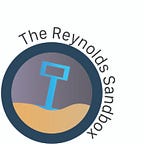Where can we locate ‘Intercultural Communication’ In our Lives?
Reynolds Sandbox reporter Kennedy Vincent sits down with Dr. Jenna Hanchey over Zoom to discuss Intercultural Communication. Hanchey is an assistant professor of Communication Studies at the University of Nevada, Reno.
Kennedy: The ACT framework: (raising awareness, critiquing invisible dimensions of power, and thoughtfully taking action) is a technique in intercultural communication. The ACT Framework also reminds us how not everything can be “solved” with a single action. How has the technique broadened your spectrum of understanding culture?
Dr.Hanchey: I remember when I was a Peace Corps volunteer in Tanzania, I lived in a small village area where I taught physics in high school and it took me about a year and a half of being in country, speaking Swahili better and better as the months went by to really realize how little I actually understood what was going on. How much I had been missing this whole time. Awareness is really important, but then you have to think, ‘Oh my gosh, I’m just now realizing how little I had been aware of thinking critically about, what else am I missing?’
For Hanchey, her awareness has changed her outlook on culture in her day to day life. Hanchey has taken a critical approach in looking at different contexts in our lives.
She provides examples to listeners such as, “We can think about within our family context, within the news, we hear things, we talk about different cultures. We talk about our own culture and what it means to us in a variety of ways. All of these things come into play when we are actually meeting with and choosing to interact or choosing not to interact with people of different cultures.”
Kennedy: In your opinion, how can we mindfully motivate individuals to have respect and consider the perspective of others differently than our own? And in achieving this, we realize how powerful and how it uplifts the whole vibe of the collective.
Dr.Hanchey: I really appreciate being able to teach Intercultural Communication, because I think every class is an opportunity to have a ripple effect that extends out. When people in the class learn more about how to approach other cultures, then they are automatically talking to their friends and family about that. They’re talking to their parents and friends about this, and spreading what they’ve learned in their own social circles. I think that that’s really important too, and can have an effect.
This article gives a brief summary the audio interview with Dr.Hanchey linked above.
